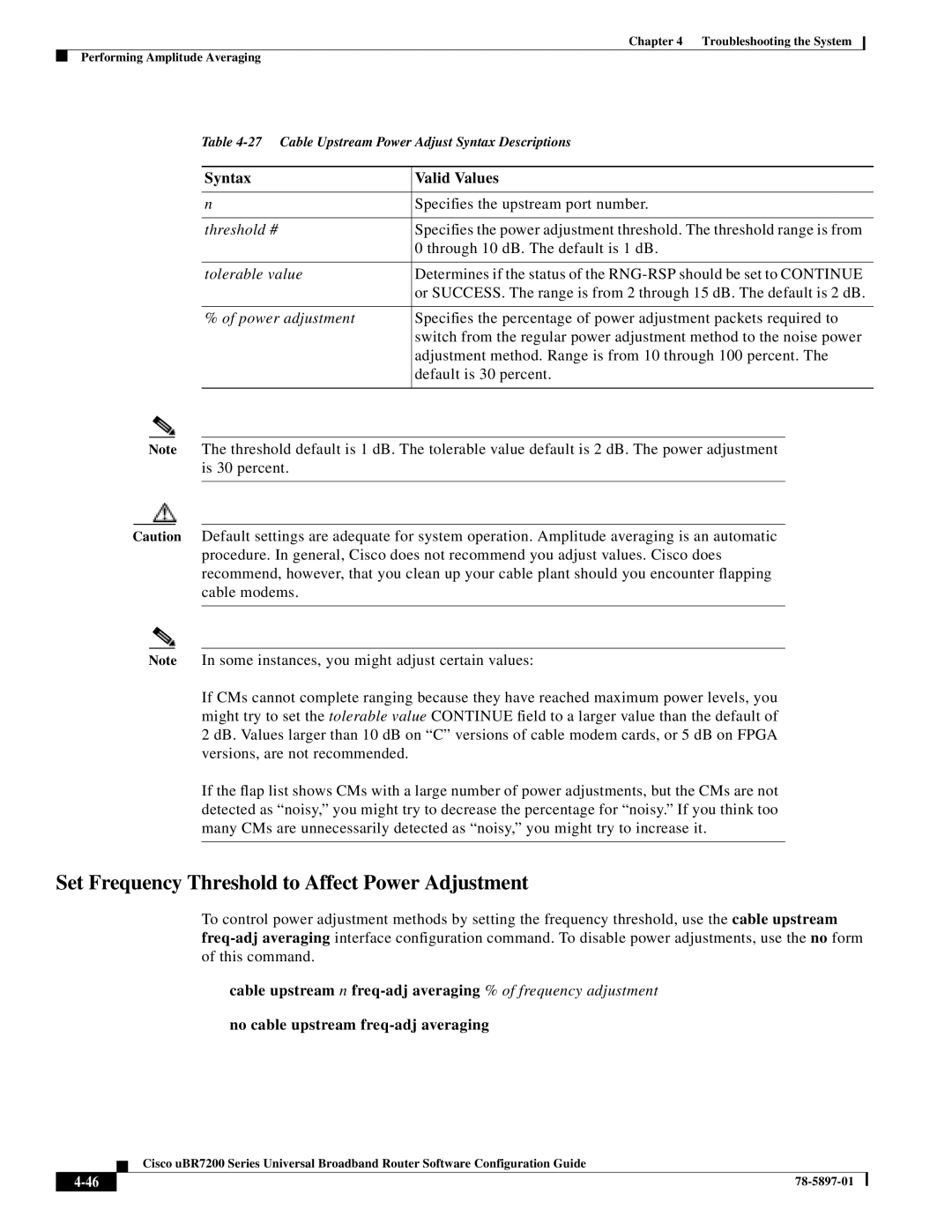
Chapter 4 Troubleshooting the System
Performing Amplitude Averaging
Table
Syntax | Valid Values |
|
|
n | Specifies the upstream port number. |
|
|
threshold # | Specifies the power adjustment threshold. The threshold range is from |
| 0 through 10 dB. The default is 1 dB. |
|
|
tolerable value | Determines if the status of the |
| or SUCCESS. The range is from 2 through 15 dB. The default is 2 dB. |
|
|
% of power adjustment | Specifies the percentage of power adjustment packets required to |
| switch from the regular power adjustment method to the noise power |
| adjustment method. Range is from 10 through 100 percent. The |
| default is 30 percent. |
|
|
Note The threshold default is 1 dB. The tolerable value default is 2 dB. The power adjustment is 30 percent.
Caution Default settings are adequate for system operation. Amplitude averaging is an automatic procedure. In general, Cisco does not recommend you adjust values. Cisco does recommend, however, that you clean up your cable plant should you encounter flapping cable modems.
Note In some instances, you might adjust certain values:
If CMs cannot complete ranging because they have reached maximum power levels, you might try to set the tolerable value CONTINUE field to a larger value than the default of 2 dB. Values larger than 10 dB on “C” versions of cable modem cards, or 5 dB on FPGA versions, are not recommended.
If the flap list shows CMs with a large number of power adjustments, but the CMs are not detected as “noisy,” you might try to decrease the percentage for “noisy.” If you think too many CMs are unnecessarily detected as “noisy,” you might try to increase it.
Set Frequency Threshold to Affect Power Adjustment
To control power adjustment methods by setting the frequency threshold, use the cable upstream
cable upstream n
no cable upstream
Cisco uBR7200 Series Universal Broadband Router Software Configuration Guide
| ||
|
